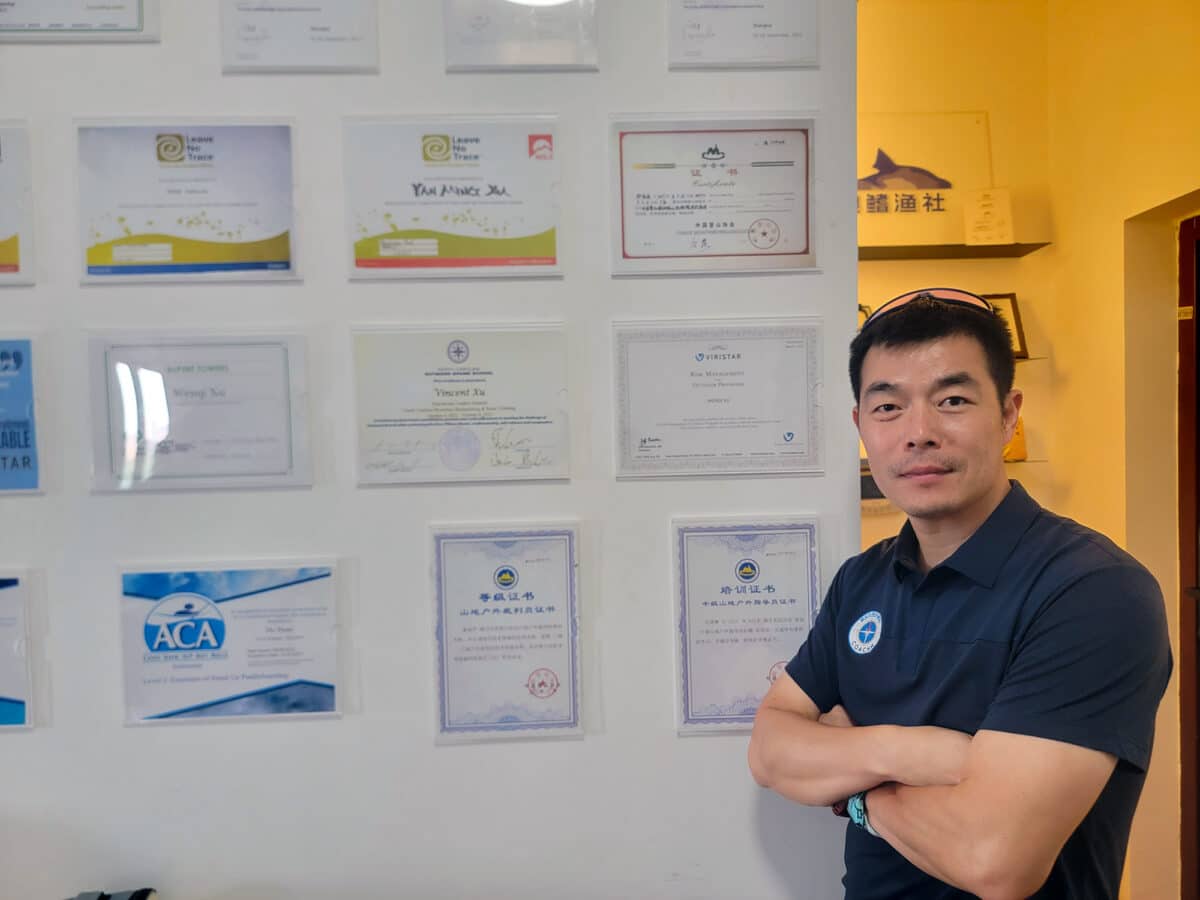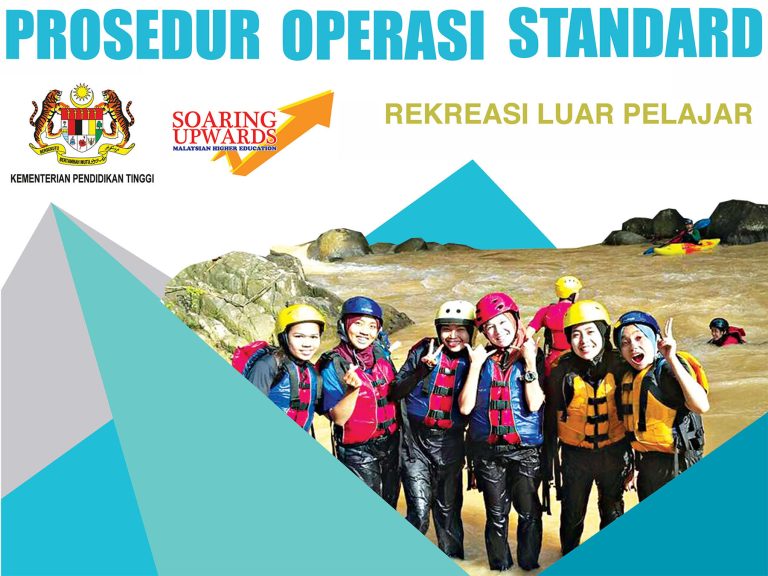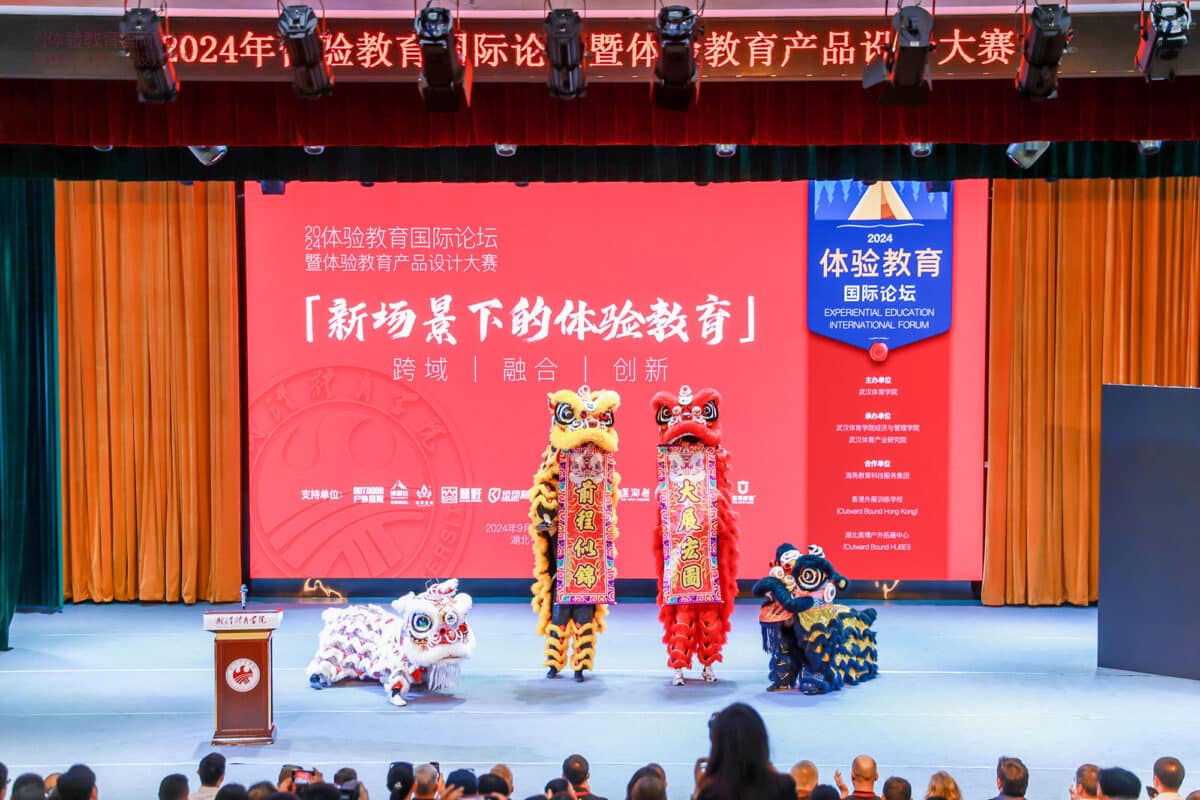
Viristar provided a keynote presentation, and engaged in a panel discussion on the future of experiential and outdoor education, at the 2024 Experiential Education International Forum hosted by Wuhan Sports University in Wuhan, China this past week.
The Experiential Education Forum brought together outdoor and adventure organizations from China and around the world to share information and inspiration for advancing the experiential adventure sector in China and beyond. The event also provided a window into the opportunities and challenges facing the development of the outdoor education industry in China.
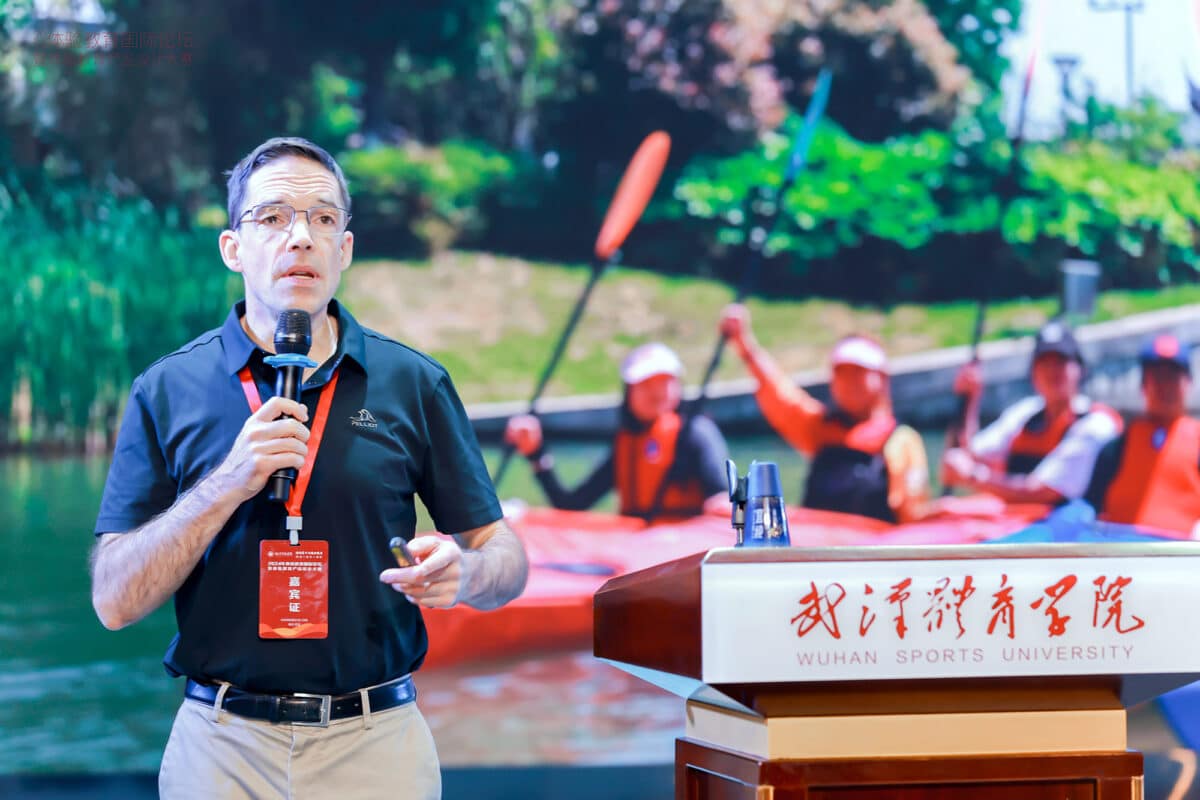
The Experiential Education International Forum and Viristar
The Experiential Education International Forum was born from the tireless drive of Dr. 徐文琦 Wenqi (Vincent) Xu, Associate Professor in the Department of Economics and Management at Wuhan Sports University, and the Executive Director of the Wuhan Sports Industry Research Institute.
Professor Xu saw a need to advance the development of standards and institutions in the outdoor sector in China. In addition to his teaching responsibilities with undergraduate and graduate students, he initiated the Forum in 2012 to disseminate research and good practice about adventure-based and experiential learning activities.
Wenqi, a graduate of Viristar’s Risk Management for Outdoor Programs training, invited Viristar to share ideas about safety in experiential education, and other subjects, with Forum attendees.
Viristar staff have provided outdoor safety training in China since 2008, from Hong Kong to the world-class rock climbing destination Yangshuo in Guangxi province. Viristar delivered its Risk Management for Outdoor Programs course in those locations, as well as on the ground in Taiwan, Malaysia, Thailand and virtually in over 60 countries and territories on six continents, and returns to Hong Kong in several months for another in-person course.
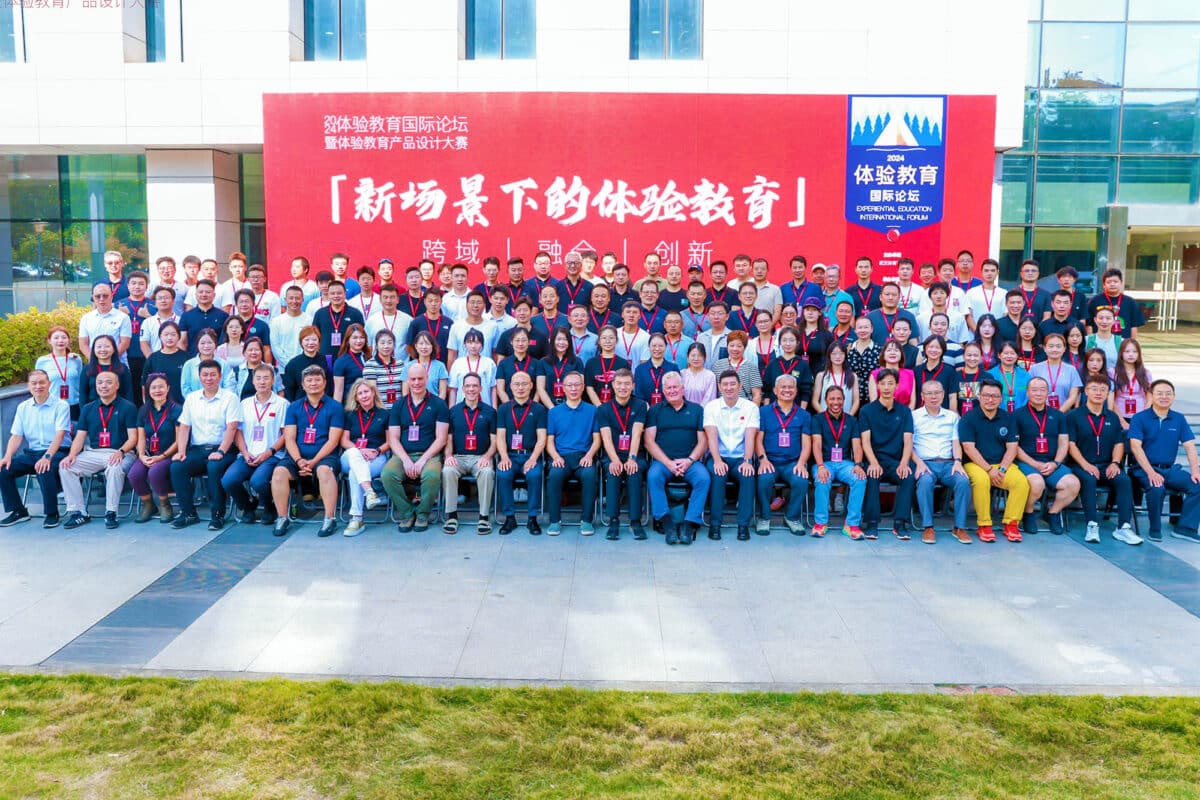
Risk Management and Experiential Education
Viristar’s keynote presentation, “Risk Management in Experiential Education,” addressed the science of safety as applied to outdoor adventure learning and related disciplines. The keynote covered:
Good Practice Guidelines, activity leader qualification schemes, and adventure organization accreditation
- Complex sociotechnical systems theory applied to safety
- Theoretical models of incident causation
- Limitations of probabilistic risk assessments
- Principles of resilience engineering in safety systems design
- Just Culture as an element of systems-based safety
- Laws and regulations for adventure risk management
- Approved Codes of Practice
- The role of National Governing Bodies (peak bodies) and industry associations
- Sports Councils
- Good Practice Guidelines, activity leader qualification schemes, and adventure organization accreditation
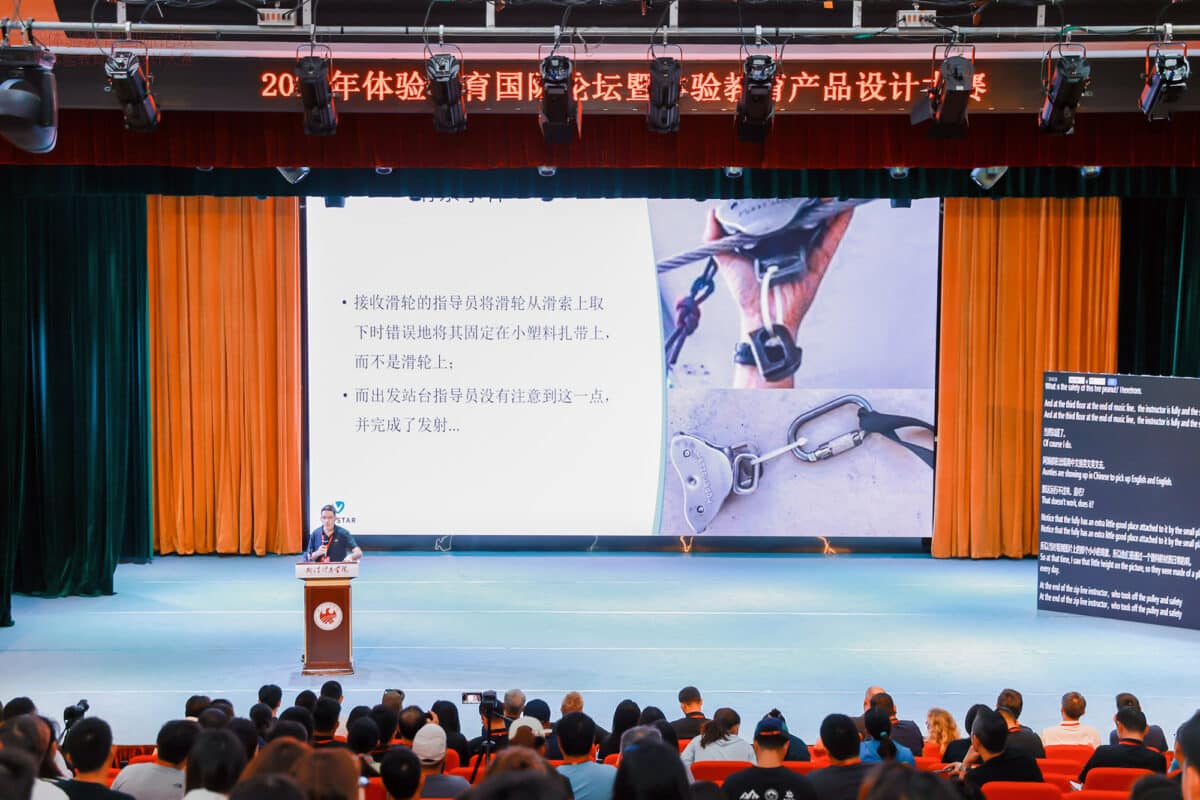
Roundtable Discussion
Viristar was also an invited guest on a panel at a roundtable dialogue on developments and trends in experiential and adventure education, with a focus on how these advances may be applied in China.
Topics included:
- Industry training needs and the direction in which practitioner training should involve, including the role of technical skills training
- Compensation and workload for outdoor educators
- Focus of outdoor education research around the world
- Integration of outdoor adventure learning into formal K-12 curriculum
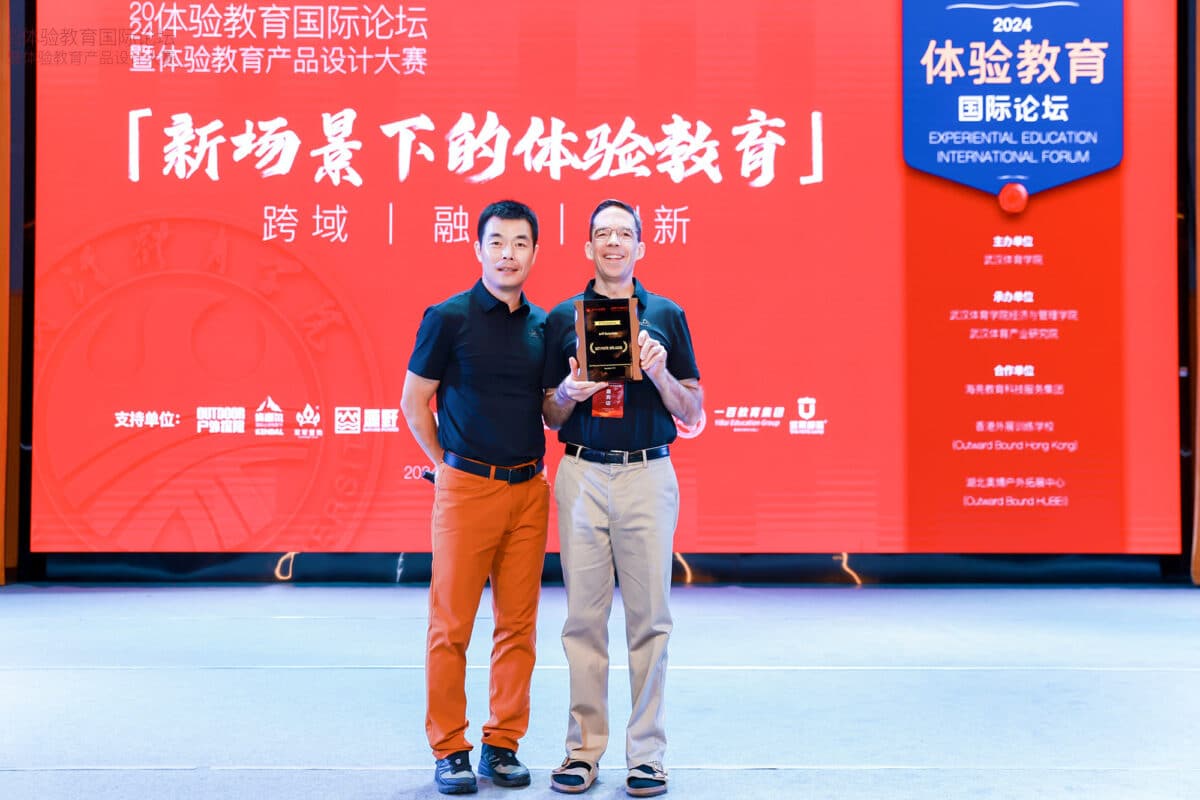
Forum Participants
The forum featured presentations by the Executive Directors of Outward Bound International, Outward Bound Hong Kong, and Outward Bound Singapore, as well as the Everest summiteer Jagan Timilsina and others, along with Viristar’s keynote.
Forum participants included academics and researchers in the outdoor and adventure sectors across China, including representatives from the China University of Geosciences, Hubei University of Economics, Wuhan University, Shanghai Tourism College, Yuzhang Normal University, and Peking University, among others.
Industry leaders in the Chinese outdoor and camp industries, and equipment manufacturers and facilities providers, also attended. These groups included Pelliot Outdoor Sports Group, KE Sports Academy, Neoroll Glamping, Hailiang Education Group, Guangzhou Panyu Mountaineering Association, and Hubei Cultural Tourism Fun Camping Holiday Tourism Co., among others.
The Experiential Education Forum—well-organized, with exquisite attention to detail—allowed hundreds of experiential education professionals to meet, discuss, and share ideas.
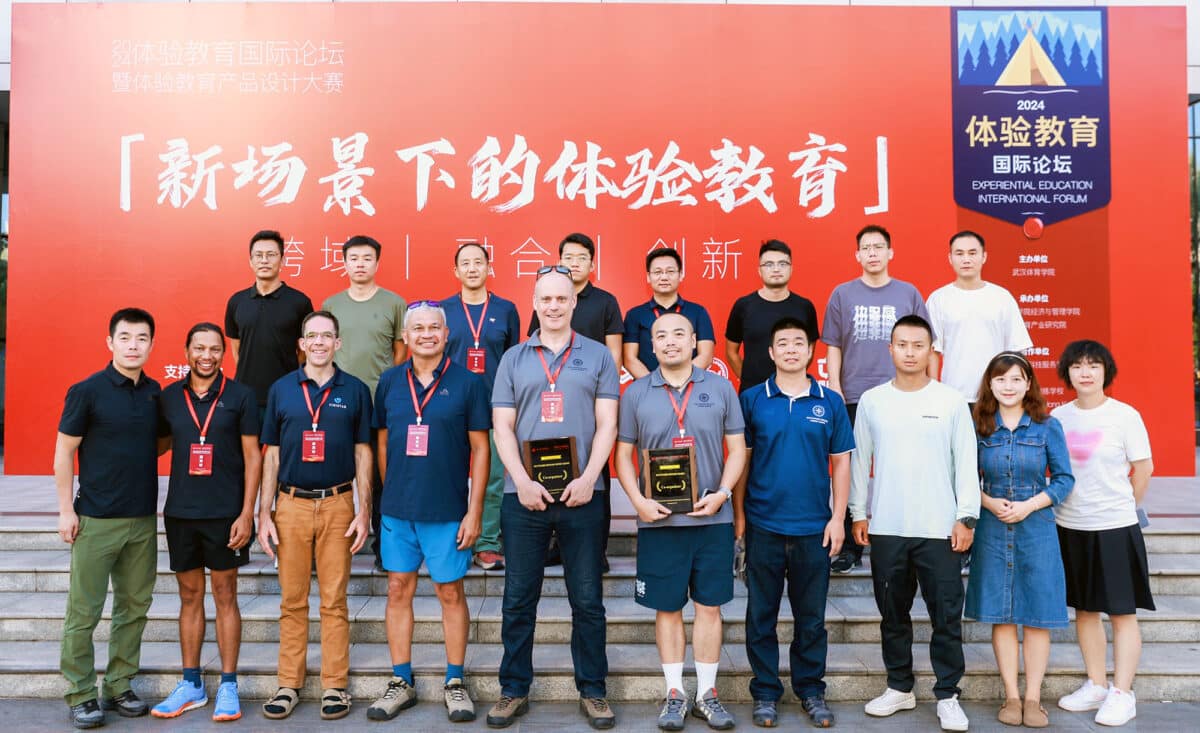
Experiential Adventure Education and Outdoor Education In China: An Analysis
Outdoor adventure learning, organized camping and experiential adventure are relatively new industries in China, compared to countries like the USA and the UK, where these sectors have been developing over more than 100 years.
But China is on the move, and eager to develop in many sectors, including these.
Beijing seeks to show global leadership, if not outright dominance, of the camping and outdoor sectors, with respect to intellectual property, physical goods, and consumer services. And the Chinese government, unconstrained by the deliberative processes that are part of the political context of other nations, can move astonishingly fast.
(Due to this rapid evolution—well-illustrated by quickly-growing Wuhan’s official slogan, “Wuhan, Different Every Day!”—and the complexity and scale of activity across China, this article does not attempt to portray the complete picture of outdoor education in China today.)
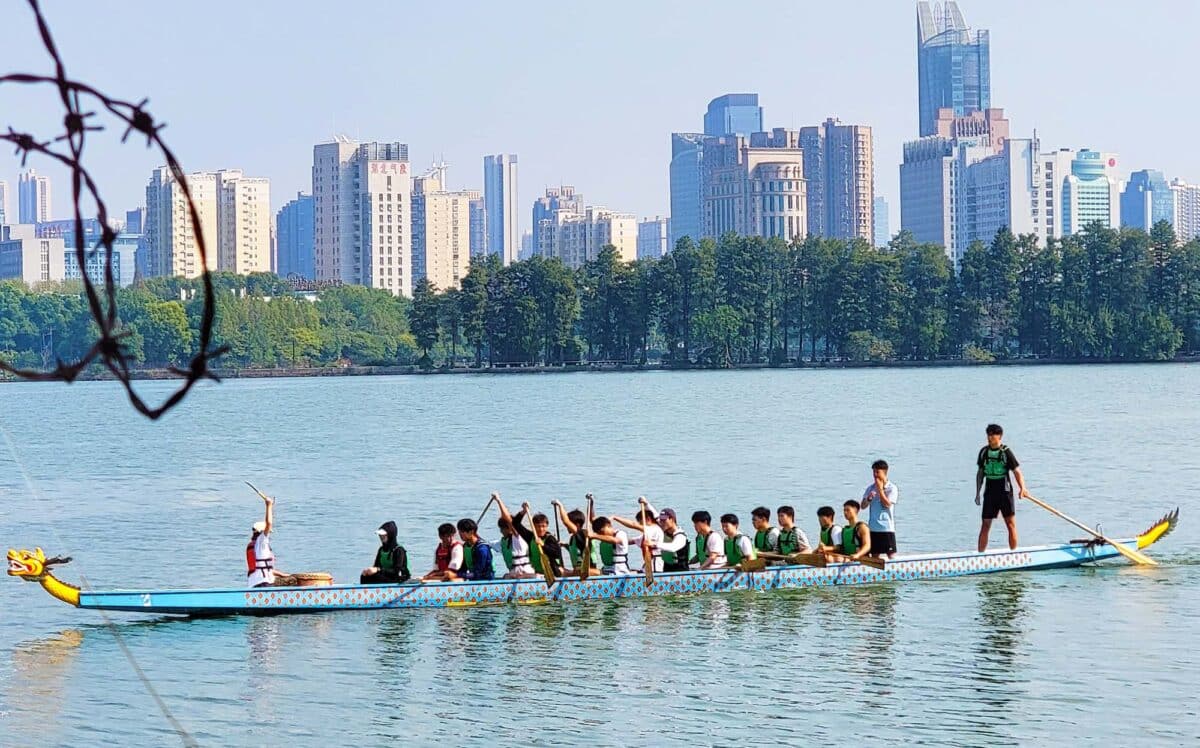
Outdoor sports and activities: the China context
Outdoor activities are sometimes placed in the sports category in universities in China. But the sports industry in China is focused on one primary objective: winning Olympic gold medals.
Wuhan Sports University, for example, has a high school (secondary school) within its campus, which sports-minded youth can attend.
Adorning the entranceway to the school are unsubtle reminders of China’s sporting ambitions: sets of Olympic rings.
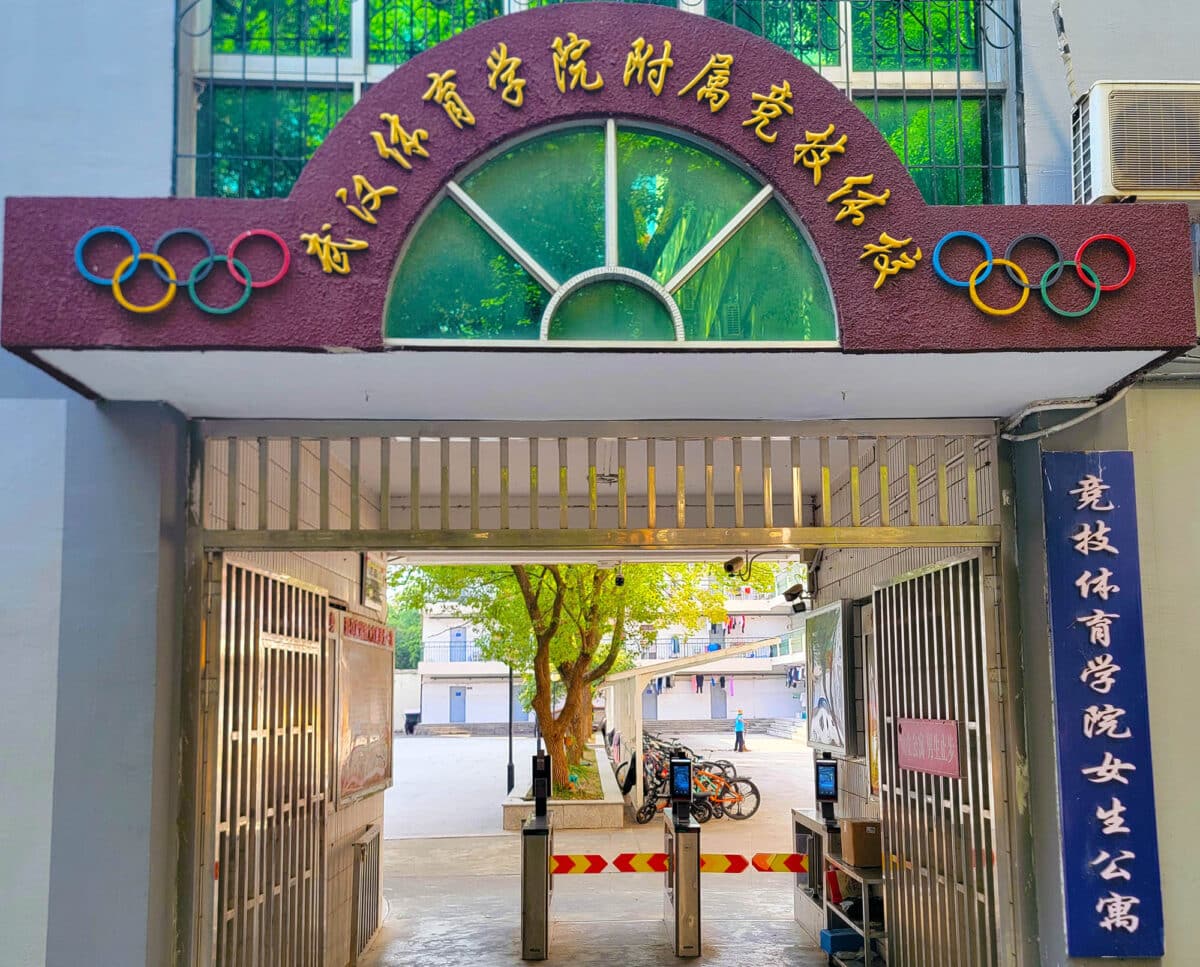
As a result of the emphasis on Olympic gold, it can be difficult for universities and other institutions to get support for the development of outdoor activities that are not Olympic sports.
When rock climbing became an Olympic sport over the last four years, with medals based on how quickly athletes climbed, resources poured into climbing: but focused on speed, and the short sport-climbing format of the Olympic games.
Climbing for outdoor recreation or outdoor education purposes was not prioritized.
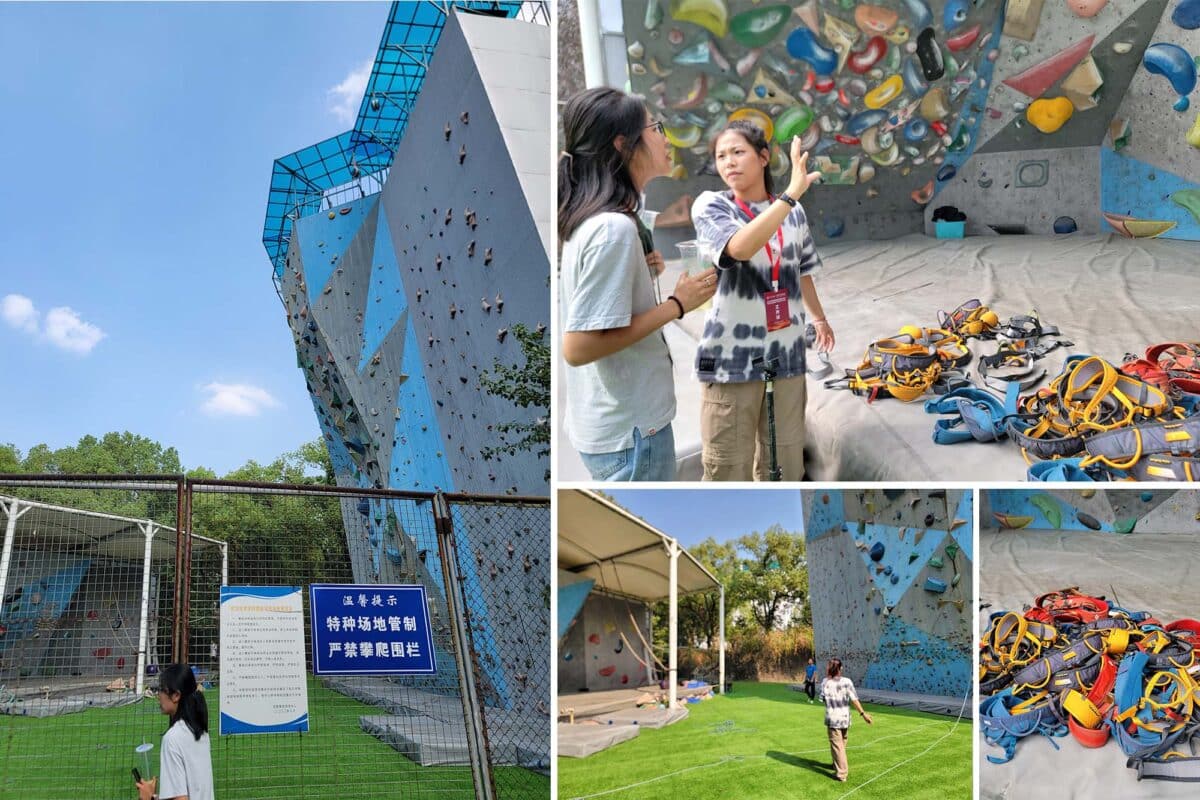
China’s central government exerts strong control over many aspects of life in China. (Security is a priority for the government; this was evident at the Forum with masses of first-year university students chanting and marching in formation led by uniformed members of the military, facial recognition scans at campus entrances, and ubiquitous surveillance cameras.)
This too, influences the development of outdoor sports and activities.
For example, the Chinese Mountaineering Association, unlike its analogues in other countries, is a government-run body. Its interests and activities, then, take on a different flavor than those of the non-governmental mountaineering associations around the world, such as those that are members of the International Federation of Mountain Guide Associations.
Other outdoor industry associations, such as the Sichuan Mountaineering Association, are also government-linked.

Outdoor Education in China: On China’s Terms
Viristar’s keynote presentation at the Experiential Education Forum focused on laws and standards supporting experiential adventure, and the national governing bodies and industry associations (such as experiential education or challenge course NGOs) that support theoretical development and good practice standards in the sector.
The presentation profiled the good work that the government and private sector in Singapore have done to support safety and quality in outdoor adventure learning in that country, including the development of national adventure safety standards.
But the development of any industry, in any nation, must fit the culture and governmental approach for that country.

New Zealand and Singapore have particularly well-developed structures for supporting the adventure sector. New Zealand has adventure safety regulations and a third-party audit scheme; Singapore provides government funding for every public school child to have high-quality outdoor adventure education experiences.
But these approaches, while successful in their respective countries, will not be appropriate for every setting.
As China speeds the development of its outdoor sector, it faces decisions around the role of three types of entities in advancing the outdoor and adventure field in China:
- China’s central government,
- Domestic NGOs, and
- Foreign organizations such as the Association for Experiential Education and the Association for Challenge Course Technology (ACCT).
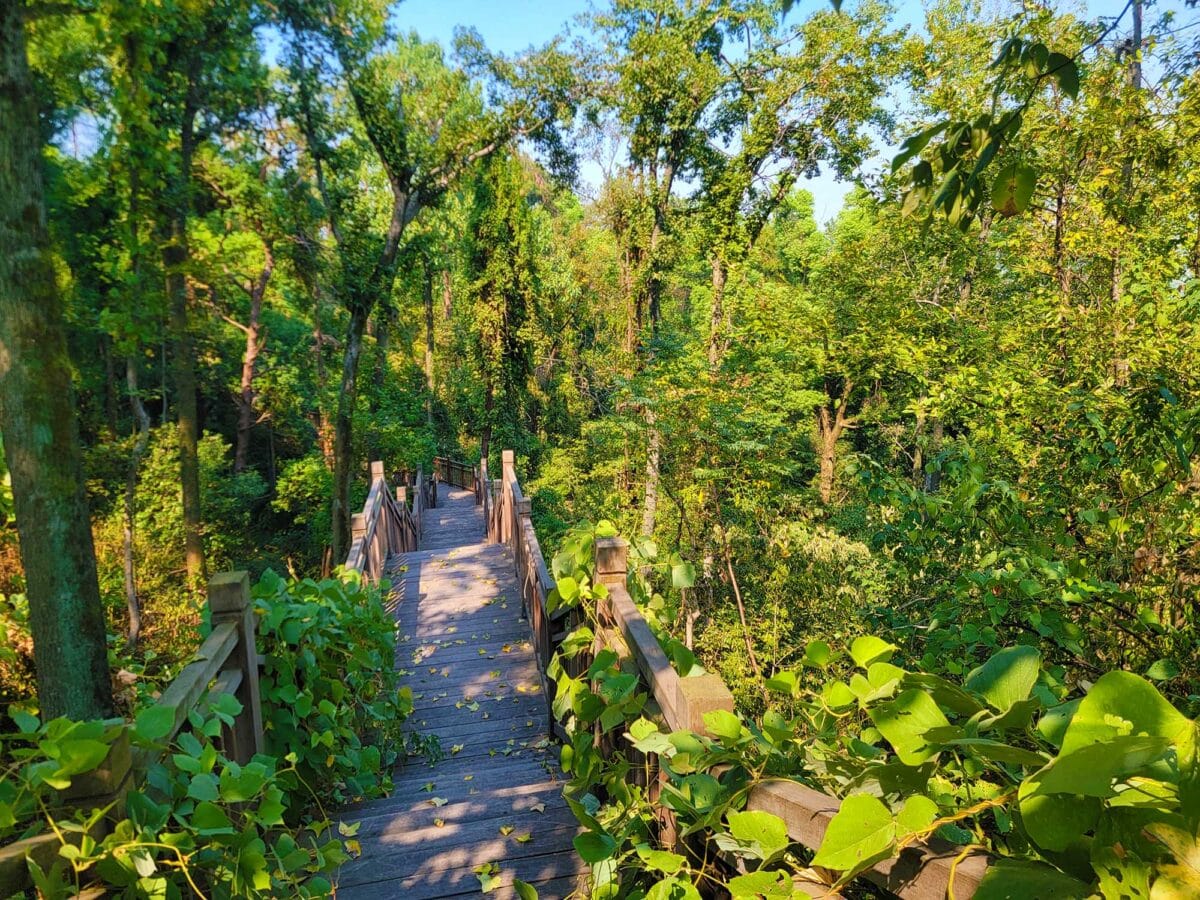
China’s economic development model of recent decades, relying on central government control, has been remarkably effective in driving advances in sectors such as the military, high-speed rail, and advanced technologies.
There’s little indication of interest in deviating from this approach.
This means that Western institutions may take a lesser role in furthering experiential learning and outdoor adventure in China.
This can been seen with Outward Bound’s efforts to grow in mainland China, which have been constrained by the fact that Outward Bound is seen as a foreign organization—even though Outward Bound Hubei is run by Chinese nationals and has minimal oversight from the international Outward Bound umbrella institution.
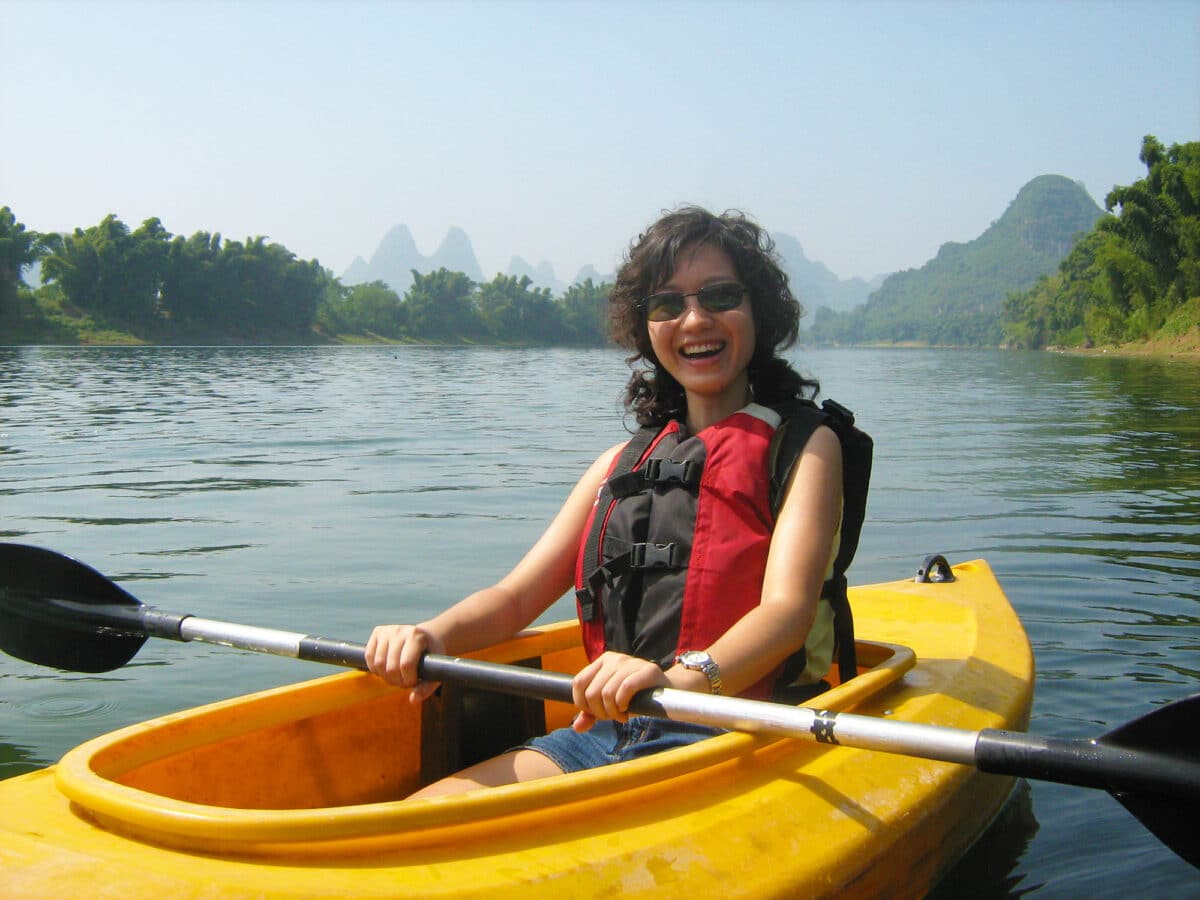
China’s emphasis on restricting the influence and control that foreign organizations have within the country leads to technical barriers to deeper international engagement in the outdoor adventure sector.
In China, much online content exists within WeChat, and not on the World Wide Web. Fluency in written and spoken Chinese is important in order to be widely effective in China. Globally common platforms such as Gmail and Facebook are blocked in China. And there are important considerations around the protection of intellectual property to keep in mind.
These situations may constrict engagement between outdoor activity bodies and standards-setting institutions (such as Paddle UK, the American Canoe Association, or ACCT) and outdoor professionals in China.
And due to differences between Chinese and Western cultures, including norms around equity and inclusion (for example regarding gender identity and gender roles), standards and practices from Western organizations may not easily fit into the Chinese context, in the absence of cultural competence and flexibility.
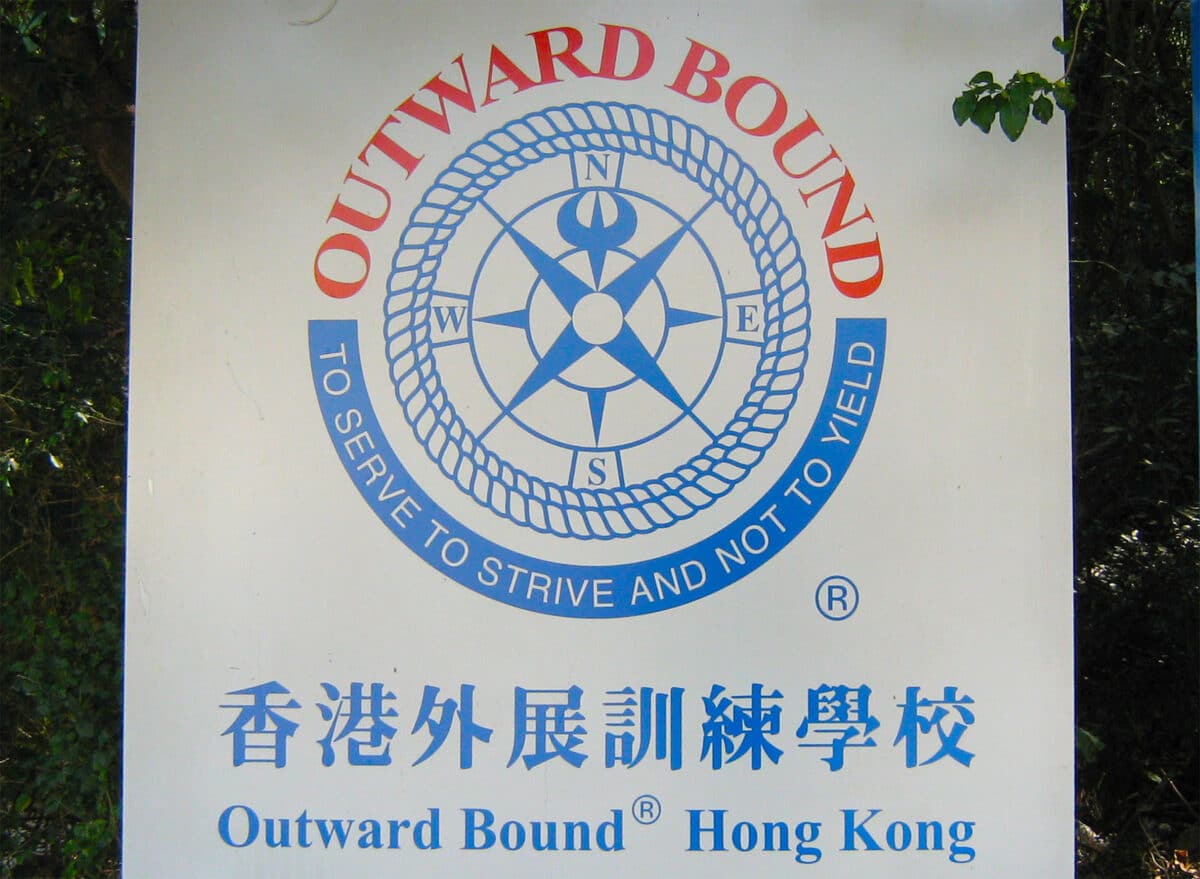
Geopolitical Considerations
Another consideration that overlays the intersection of the Chinese outdoor and adventure sector with industry players in other countries is the future relationship an increasingly muscular and empowered China may have with other nations.
There is on China’s part a clear desire to learn and benefit from the work that other nations have done in a variety of sectors, including outdoor education. And there is also on China’s part a clear—and understandable—desire for the country to control the affairs that happen within its own borders, to not see its expansion unreasonably constrained, and to establish and maintain global leadership across many industries.
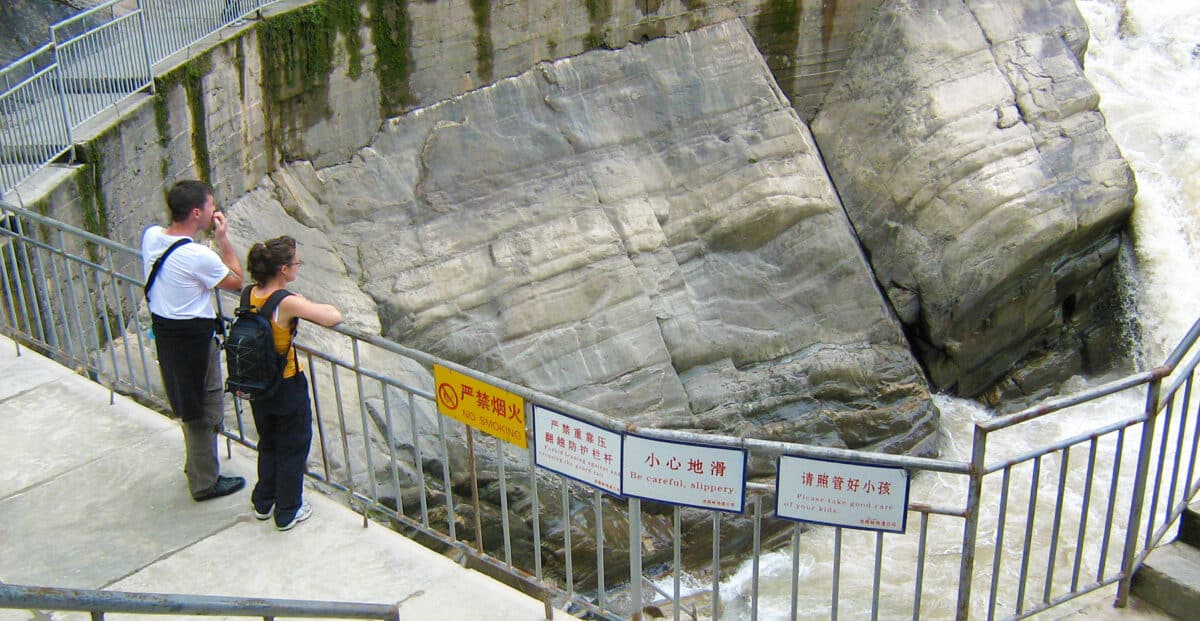
China seems to seek its own development and expansion, but not to the extent where decoupling with the West occurs, to the extent that has been experienced to varying degrees by Iran, Russia and North Korea.
Nevertheless, organizations and companies outside of China interested to serve the massive Chinese market may find it prudent to maintain a diverse customer base, and be prepared for restrictions if external events propel engagement in that direction.

Enormous Potential
China, with 1.4 billion persons, is the largest country in the world, by some population estimates—dwarfing the 340 million-strong population of the USA, or the 70 million inhabitants of the UK.
It has an enormous economy, with the world’s largest GDP (purchasing power parity).
And China’s central government has the capacity to move extremely quickly; mobilize vast resources; develop comprehensive, sweeping plans, and execute them at a very large scale—including, as it plans to do, in the camping and outdoor sector.
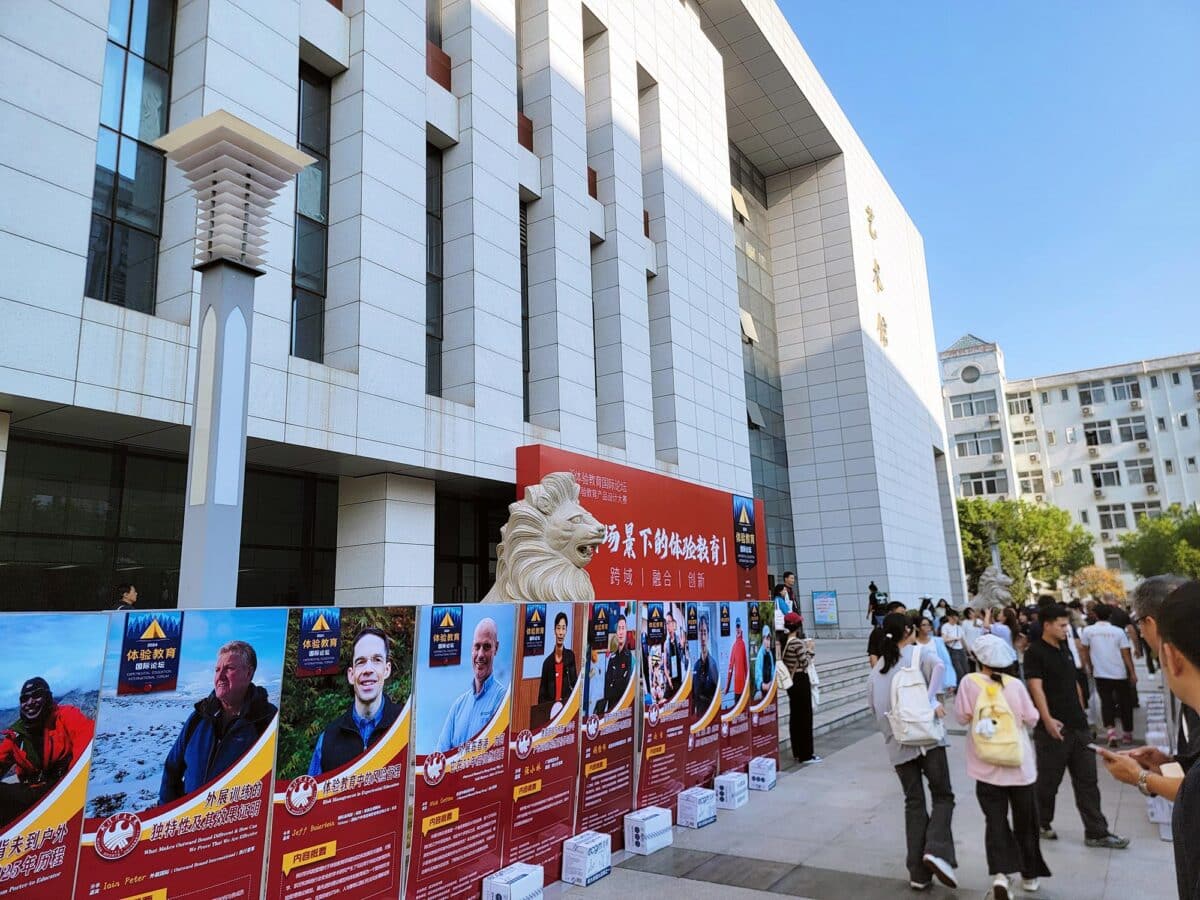
While there are challenges regarding international cooperation in developing the field of experiential adventure in China, some organizations have successfully navigated them. The technical safety skills training organization Rescue 3 International has a robust presence in China, for instance, and students at Wuhan Sports University are trained and certified under American Canoe Association training systems.
Outdoor industry professionals across China have consistently shown an interest in collaborating and sharing knowledge with their counterparts in other countries, and in working together across borders to develop China’s outdoor sector, to bring the benefits of high-quality outdoor education and recreation programs to the Chinese people.
Dr. Wenqi Xu and his team at Wuhan Sports University are an inspirational and positive model of that collaborative spirit. The Experiential Education International Forum is a brilliant example of outdoor professionals coming together from around the world to share ideas and develop relationships which can bring the powerful benefits of high-quality outdoor and adventure experiences to more people in China and beyond.
